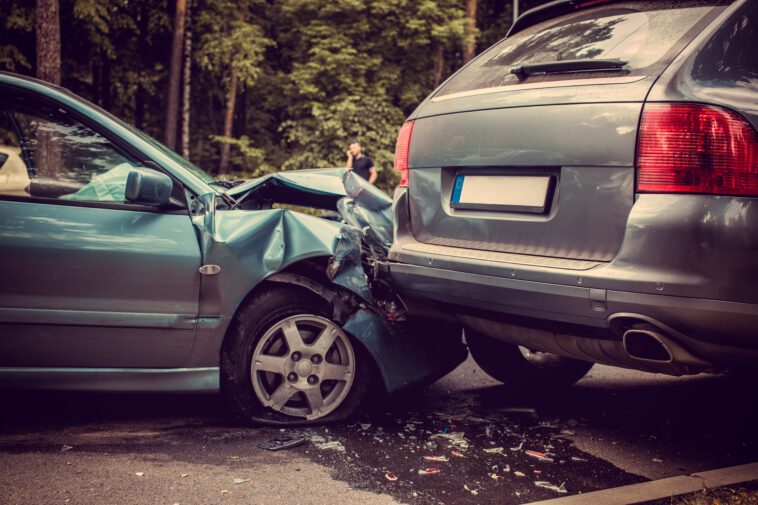Collision insurance is a type of auto insurance that helps pay for damage to your vehicle if it’s in an accident with another car or object.
Unlike comprehensive coverage, collision pays based on the actual cash value of your car. This means that it doesn’t cover repairs that exceed your deductible amount.
Damage to your car
Collision insurance covers the repair of your car if it is involved in an accident. It also covers damage caused by things that are out of your control, like fire, hail, and theft.
When your car is damaged, it takes a long time to get it back in working order. That’s why collision and comprehensive insurance are so important.
If you’re hit by an uninsured driver, your vehicle can be completely destroyed unless you have collision coverage. But if the other driver’s insurance doesn’t pay for the damages, you can file a claim with your own insurer to get the money you need to cover the repairs.
You can choose a high or low deductible on your collision coverage, which will make it easier for you to afford the monthly premiums. However, you should remember that if you get into an accident, the amount of your deductible will be subtracted from the amount of your insurance check.
In addition to the deductible, your collision policy may have a limit on how much it will pay for your vehicle’s repairs. This limit is called the actual cash value (ACV) of your car. ACV is the market value of your vehicle in its current condition, minus any depreciation that has occurred since you bought it.
The actual cash value of your car is a good indication as to whether or not it makes sense to purchase collision and comprehensive insurance. If the cost of your policy plus a deductible is greater than 10% of your car’s value, it’s likely time to drop these coverages.
To determine whether you need collision insurance, ask yourself a few questions. First, do you have a lot of miles on your vehicle? Second, do you drive a lot of different types of vehicles? Finally, are you prone to accidents and collisions?
If you drive a lot, collision and comprehensive insurance might be a good idea. But if you only use your vehicle a few times a year, or if you’re planning to replace your car in the near future, it may not be worth purchasing these policies.
Damage to another person’s car
Collision insurance is a type of coverage that pays for repairs to your vehicle after you’ve been in an accident. It’s often required as a condition for a loan or lease. It’s also an option when you own your car outright.
If you’ve been involved in an accident, it’s important to file a claim as soon as possible. Contact your insurer to notify them and obtain an accident report. You’ll need this information to start the process of pursuing a claim for property damage and/or bodily injury damages.
You should also document the incident and take pictures with your camera. In the future, these photographs can be helpful in determining the extent of the damage to your car or that of the other driver’s.
Your collision insurance will usually cover the cost to repair your car minus your deductible. This deductible can range from $500 to $1,500.
Another option is to file a third-party claim against the other driver’s insurance company. This may be an easier way to recover compensation, but it’s not as quick. The other driver’s insurance company will likely want to investigate the accident before paying out on your claim.
In the meantime, you can collect evidence for your claim and subpoena witnesses to help prove that the other driver was at fault. In some cases, you can even hire an attorney to represent your case.
As with any other legal case, you have the right to receive fair compensation for your injuries, lost wages, and other damages resulting from an accident. An experienced personal injury lawyer can help you build a strong case and seek the full amount of money you deserve.
The value of your vehicle will affect the amount you can expect to receive under a collision policy. For example, if you paid $500 for your car and it is worth $10,000 today, your insurance would pay to replace your vehicle with an equivalent model. You can also ask your insurance company to reimburse you for the actual cash value of your car, if your insurance policy has that option.
Damage to property
When you get into an accident, it’s important to understand how your insurance will cover the damage to your car and other vehicles. You’ll need to know what coverage you have and how much it will pay, as well as how to make a claim.
Collision insurance covers the costs of repairing or replacing your vehicle if you’re at fault for an accident. It also pays to replace your vehicle if it’s damaged in an incident with another driver or is stolen.
Depending on the policy, collision insurance may also cover damages to your car if you flip it or hit a pothole. It’s always a good idea to review your policy with an agent before you purchase it.
Property damage liability, on the other hand, covers your legal responsibility for damages to another person’s property if you cause an accident. It’s important to have this coverage, as it can help you avoid paying out-of-pocket for repairs that exceed the value of your insurance.
If you are involved in a crash, you’ll need to file an insurance claim immediately. This is usually done via the company that issued your policy. However, you should be aware that it can take a long time to process your claim and determine who is at fault for the accident.
Once you have submitted your claim, the insurance company will work to determine what is a fair amount for your property damage. They will do this by inspecting the damage, reviewing police reports, and interviewing those involved in the crash.
After the insurance company has determined a fair value, they will make a settlement offer. If you’re unhappy with the amount, it’s a good idea to speak with a personal injury lawyer who can advise you on how to negotiate with your insurer for a higher settlement.
A lawyer will also be able to negotiate with the at-fault party to ensure that they are fully covered for the damage they caused. They can also help you avoid making any statements that could be used against you later on in a lawsuit.
Damage to your own car
In the event of a car accident, collision insurance will pay to repair or replace your own vehicle, up to the limits in your policy. This coverage usually comes with a deductible that you can choose when you buy your insurance.
If you own a new car, it is a good idea to carry both collision and comprehensive insurance to protect your investment from the high cost of repairs or replacement should your vehicle be damaged in an accident. But if you only own a used car or you are in an area where natural disasters occur, it may be a good idea to forgo collision and simply have liability insurance instead.
You should also be aware that if another driver causes an accident, his or her insurance company will likely pay for the damage to your own car, up to the limit of their own policy. But this will not be immediately reimbursed to you, as it will take time for an investigation into the accident to show that you were not at fault.
Moreover, if the other person is driving an older car, they may not have enough coverage to cover your damage. If this is the case, it is a good idea to consider purchasing additional auto insurance to cover the cost of your repairs or to get an auto loan to help you buy a newer car.
In some states, the insurance company of the at-fault driver can pay for your damages directly if the other driver does not have sufficient insurance to cover your losses. This is a major advantage over filing a third-party claim against the at-fault driver, as it can avoid delays in paying out.
While this can be an expensive process, it is worth it if your car is severely damaged or completely totaled. The only downside is that you will have to pay the deductible yourself.
You should always be careful when driving to prevent any accidents. If you are involved in an accident, stop your car safely and call the police to report it. This will help prevent any further damage to your car and to the other car as well. Make sure to record the other driver’s name, address, phone number and insurance information.

